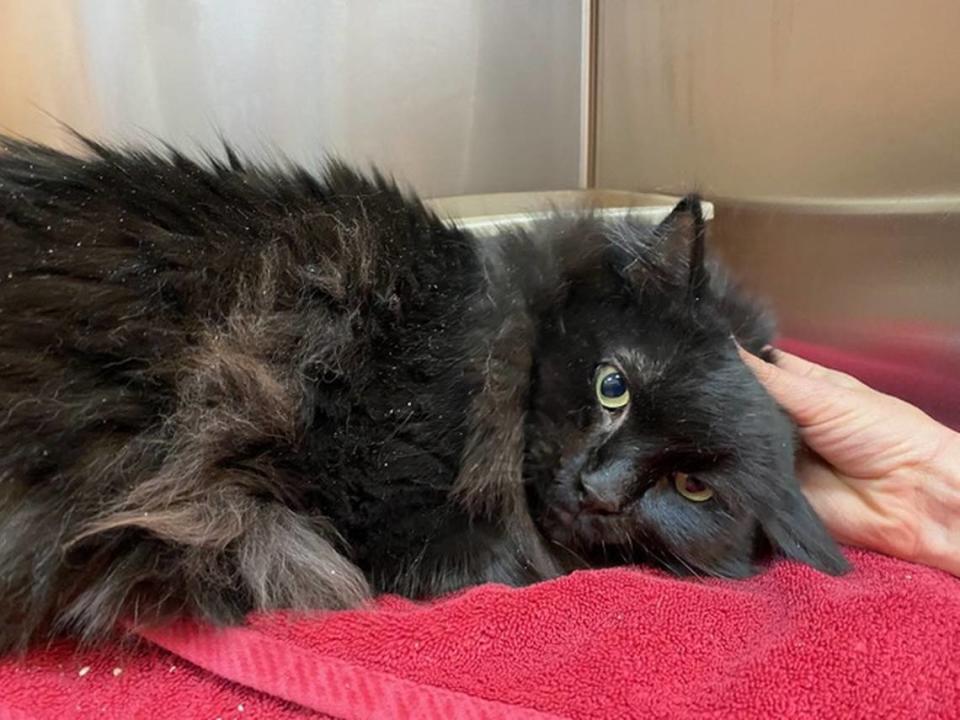Oregon cat goes missing — and turns up 1,200 miles away and 5 years later, rescuers say
After five years — and a journey of more than 1,200 miles — a missing cat is set to be reunited with its owners this week, according to an animal rescue group in New Mexico.
The black cat, which was found wandering around Santa Fe recently, was tagged with a microchip. Scanning the chip “revealed that the kitty had traveled more than 1,200 miles from Portland, Oregon,” Murad Kirdar of the Santa Fe Animal Shelter said on Monday in a news release.
The shelter used data from the microchip — a device the size of a grain of rice, planted under the cat’s skin — to contact its family in the Pacific Northwest.
The cat’s name is Sasha.
Owner Viktor Usov, 31, reported Sasha missing five years ago and said he was surprised to learn his cat had been discovered so far away.
“I couldn’t believe it,” Usov said, according to the shelter. “We thought the worst, but when we received the call, we were so thankful Sasha was alive and well.”
Dog owners, beware: California park has canine distemper outbreak, rangers warn
Kirdar called microchips “the only form of pet identification that is permanent, with a unique number that cannot fall off, be altered, or be removed.”
Kirdar is flying Sasha on Tuesday to Portland after American Airlines offered to help make the reunion possible, according to the shelter.

“In this case, Sasha’s family hasn’t moved or changed numbers, so we are lucky this story has a positive outcome,” Kirdar said, explaining that pet owners have to update contact information if they move or get new phone numbers.
To microchip a pet, an electronic chip “is injected under the skin using a hypodermic needle. It is no more painful than a typical injection, although the needle is slightly larger than those used for injection,” according to the American Veterinary Medical Association.
The American Veterinary Medical Association said “the microchip is not a GPS device and cannot track your animal if it gets lost.”

